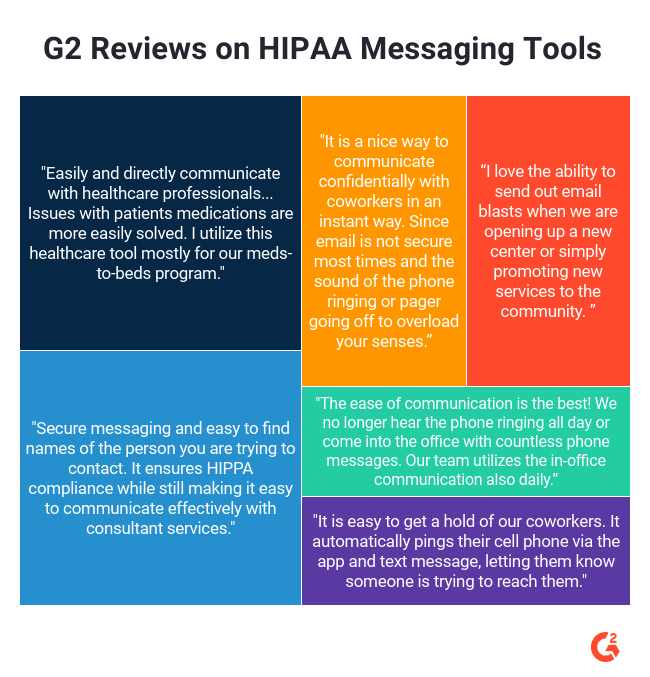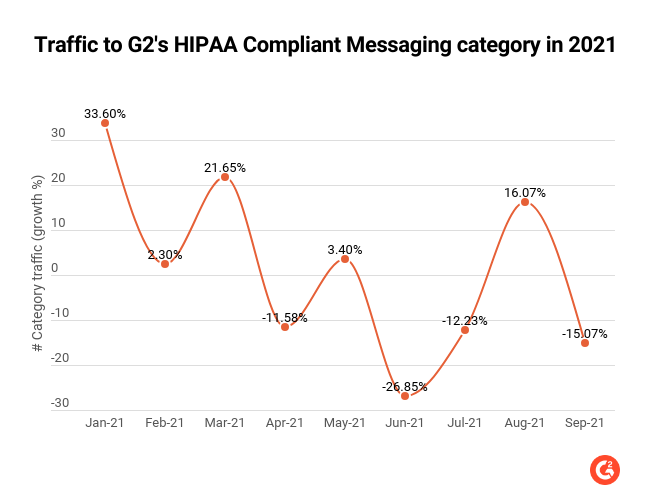The COVID-19 pandemic will continue to drive digital transformation in healthcare. With the adoption of remote working, virtual team collaboration, cloud computing, increased access to telemedicine, and a strong focus on patient engagement, the global healthcare system continues to see rapid technology transformation.
Sensitive health information needs to be protected
In the wake of the pandemic, healthcare providers are attempting to quickly respond to patient needs via telehealth, so potential security concerns and Health Insurance Portability and Accountability Act (HIPAA) compliance maintenance may have taken a backseat. Now, the healthcare industry must refocus and establish data security best practices that maintain HIPAA compliance while providing an engaging and customized patient experience.
What is HIPAA Compliance?
HIPAA was passed by the U.S. Congress in 1996, and it does the following:
- Provides the ability to transfer and continue health insurance coverage for millions of American workers and their families when they change or lose their jobs
- Reduces health care fraud and abuse
- Mandates industry-wide standards for health care information on electronic billing and other processes
- Requires the protection and confidential handling of protected health information
Merry Marwig, CIPP/US, senior market research analyst, privacy and security, G2 says:
“Stolen healthcare data is highly valuable to hackers because it contains a treasure trove of personally identifiable information (PII) compared to other stolen datasets, like financial datasets, which are often less complete. Medical records can contain full names, dates of birth, current and past contact information, family relationships, copies of identification cards, social security numbers, employment information, and more.
Stolen personal information can be purchased on illicit web markets by malevolent people and used for a number of purposes, such as to take out fraudulent loans or even fill prescriptions for controlled substances. Companies can monitor the information for stolen data using dark web monitoring tools and can protect employees by offering employee identity theft protection software.”
Why do organizations need HIPAA compliant messaging?
Online patient portals and mobile applications can present barriers because patients may struggle with registering, downloading, or navigating the platform. As a result, many organizations have chosen to adopt text messaging as a more direct method for contacting patients.
Text messages often reside on people’s devices and device backups indefinitely. This might be fine for everyday text messages with friends, but it presents a challenge for messages containing personal health information (PHI).
What is HIPAA Compliant Messaging Software?
HIPAA compliant messaging software helps healthcare organizations ensure that sensitive health information is protected while communicating with patients and healthcare practitioners.
While much discussion revolves around text-based HIPAA compliant messaging, vendors also offer solutions that encrypt and secure emails, video conferencing tools, chatbots, and help desk tools.
HIPAA's goal was to improve medical billing for the government by requiring electronic record keeping and reimbursements. The improvement in patient privacy and patient information security were downstream effects of that initiative.
HIPAA compliant messaging means that the messaging containing patient information, care instructions, or any other relevant patient information must be both secure and encrypted. One of the main benefits of HIPAA compliant messaging is seen through better patient outcomes. Mobile secure text messaging may help to improve communication among providers, leading to more efficient care coordination.
When hospitals and clinics introduce HIPAA compliant messaging into their organization, they must maintain appropriate administrative, technical, and physical safeguards for protecting PHI. To that end, organizations must take steps to:
- Ensure the confidentiality, integrity, and availability of all protected health information
- Protect against any reasonably anticipated threats or hazards to the security or integrity of this information
- Protect against any reasonably anticipated uses or disclosures of patient information
- Ensure compliance by users of the information
The G2 on HIPAA compliance
Based on G2 review data, healthcare providers are experiencing the benefits of HIPAA compliant messaging tools, such as ease of communication and collaboration with patients and coworkers which leads to better health outcomes.

G2 data highlights heavy fluctuation in traffic to the HIPAA Compliant Messaging category throughout 2021.
The peaks and lulls in HIPAA compliant messaging software seem to correspond with the seasonal shifts (winter months in the northern hemisphere), access to vaccines (more people had the ability to get vaccinated in early 2021 and throughout the summer), and the development of new SARS (COVID) variants, such as the Delta variant which was first detected in March 2021 and started to spread over the summer as people were socializing more.
Healthcare providers needed to invest in ways to communicate with patients regarding their health and with other practitioners to allow for better collaboration surrounding the virus.

What is a HIPAA compliant cloud drive?
Technically, there is no such thing as a HIPAA compliant cloud drive as no cloud server can be truly HIPAA compliant. HIPAA compliance depends on the actions of the people. Even if appropriate security is used to secure data in the cloud, HIPAA could be violated if a healthcare organization does not implement appropriate access controls.
A HIPAA compliant cloud drive will incorporate the necessary controls to ensure the confidentiality, integrity, and availability of electronically protected health information is safeguarded. HIPAA compliant cloud tools offer many benefits including cost savings, remote file sharing, custom applications, and expanded storage.
$25.54 billion
is the expected growth of the global market for cloud technologies in the healthcare industry during 2020-2024. The COVID-19 pandemic has reinforced this trend.
Source: businesswire.com
Data sharing requirements between healthcare providers and the challenges of keeping PHI private are a burden for the industry. And because of its very nature, healthcare will continue to be a target for cybercriminals.
Final thoughts
Cybersecurity will continue to be a critical concern for healthcare organizations and we can expect to see stronger security solutions, thanks to our experiences. Data security will continue to be a priority as we adapt throughout the pandemic and beyond. New methods of working, policies, priorities, and technologies will emerge under the new hybrid healthcare and telemedicine scenarios we have adopted.
Through a robust and integrated approach to data governance, the healthcare industry can continue to meet with HIPAA data regulation, reduce threats, and build trust between patients, practitioners, and healthcare organizations.
Want to learn more about Medical Practice Management Software? Explore Medical Practice Management products.

Rachael Altman
Rachael is a research analyst at G2 with a focus on healthcare and education. Prior to joining G2, she has worked as an academic librarian and in research and business development at law firms, accounting firms, and nonprofit organizations. She has a BA and MA in English and Creative Writing and an MS in Library & Information Science. Outside of G2, Rachael is a career coach, yoga and meditation teacher, and jewelry maker.
